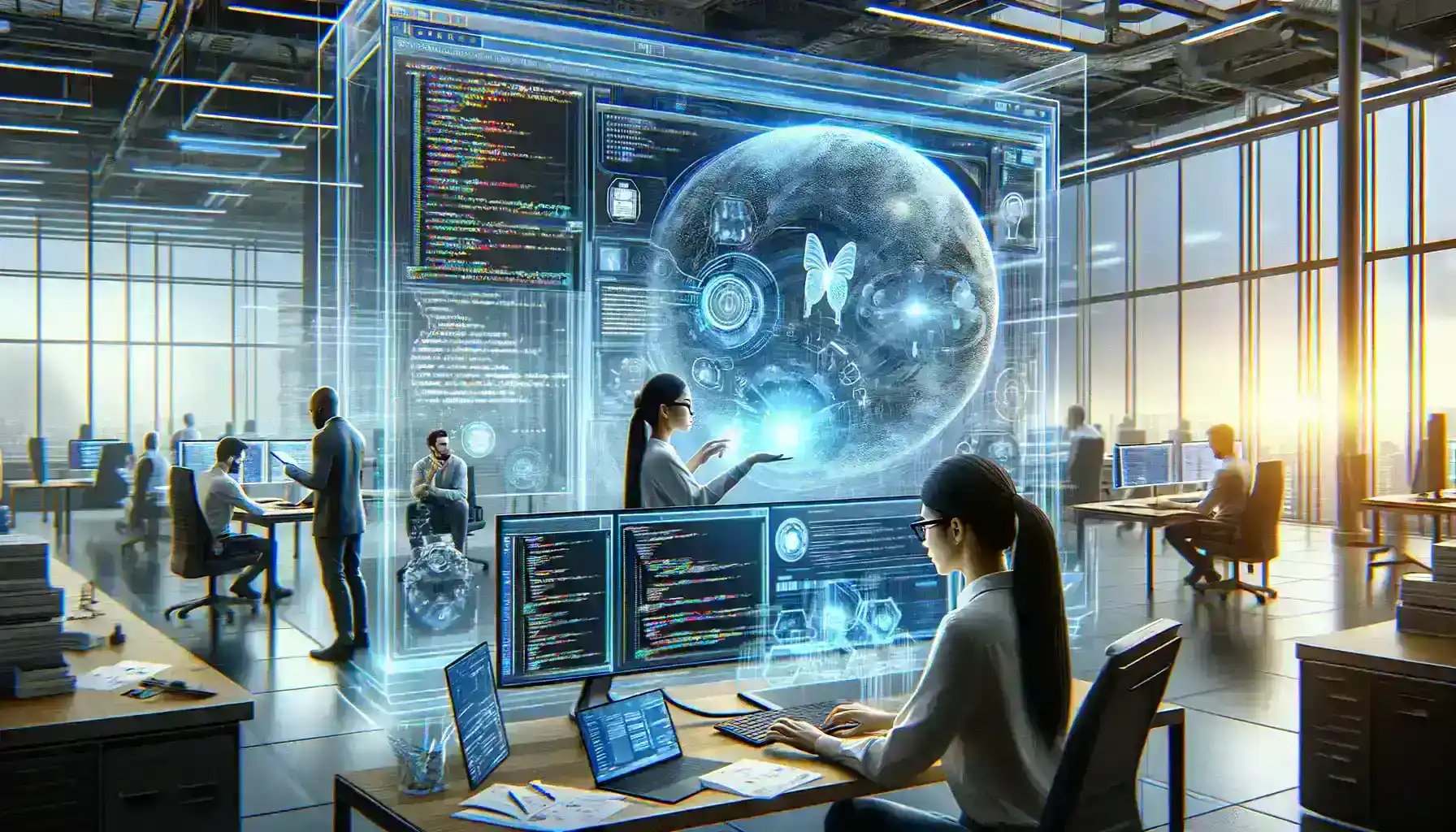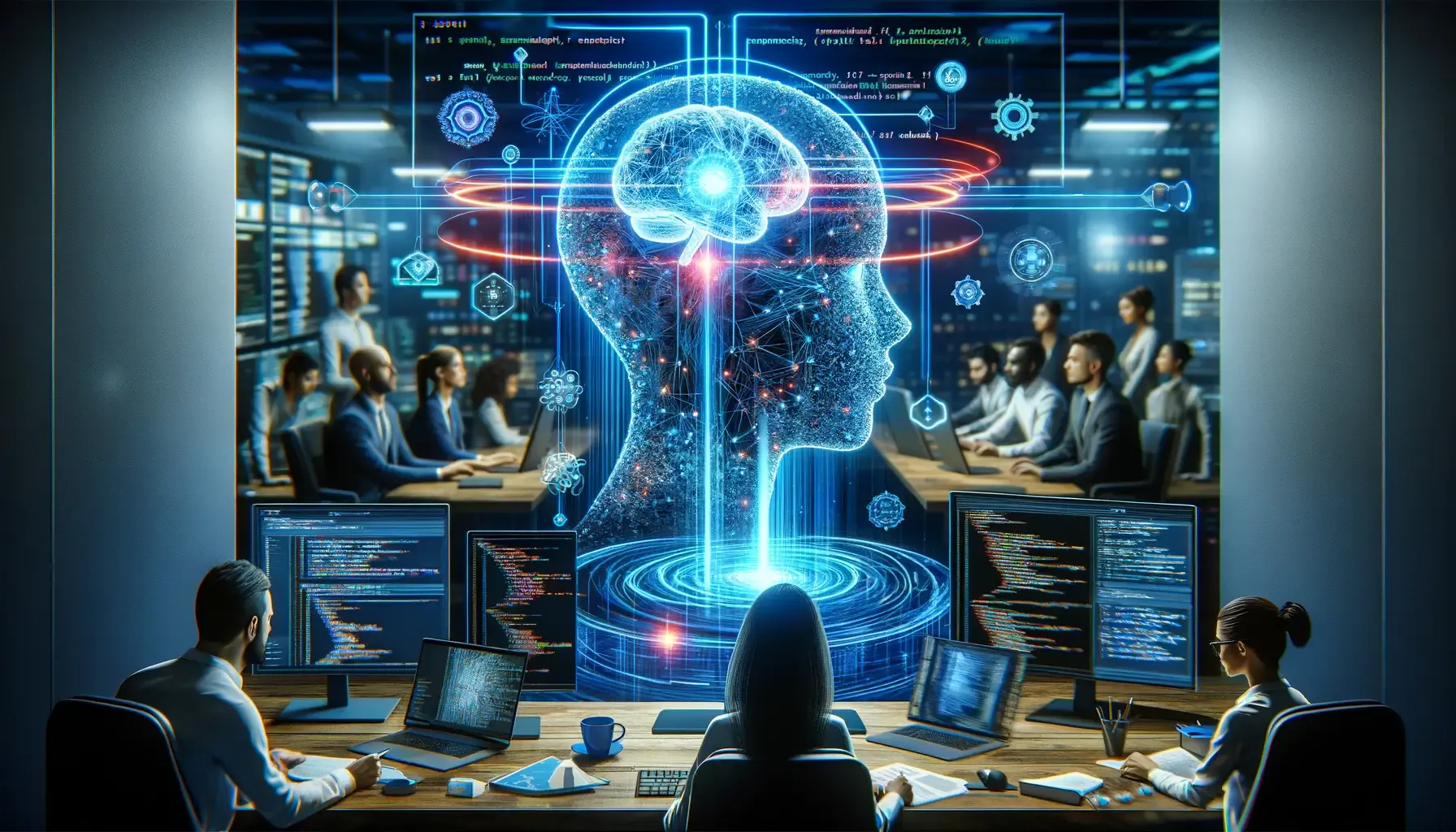Table of Contents
AI-powered debugging stands at the forefront of software development, orchestrating the intricate web of coding where debugging plays a pivotal role in ensuring the reliability and functionality of applications. However, the traditional methods of bug identification and resolution often involve tedious manual efforts, posing challenges in complex codebases. Enter Artificial Intelligence (AI), a transformative force reshaping the debugging landscape, offering intelligent solutions that expedite the identification and resolution of errors.
One of the groundbreaking applications of AI-powered debugging is automated bug detection. Consider CodeAI, a machine learning-powered tool specifically designed to analyze code repositories and predict potential issues. By learning from patterns within the code, this AI-powered debugging tool can preemptively identify common bugs, offering developers the opportunity to address them even before the code is executed. Similarly, Microsoft’s IntelliCode relies on AI-powered debugging to suggest fixes and enhancements. By analyzing thousands of open-source repositories, IntelliCode provides insightful recommendations to developers, leveraging AI for a more efficient debugging process.
AI-driven debugging tools also excel in tracing and diagnosing complex bugs. For instance, Rookout employs AI-driven analytics to track the flow of code execution in real-time. Understanding code behavior, identifies the root cause of errors, enabling developers to swiftly resolve intricate issues that would have otherwise been challenging to pinpoint. Another example is Undo, which uses AI to record and analyze program execution, facilitating developers in understanding the causes of software failures.
Moreover, AI augments debugging efforts by offering intelligent suggestions and automated fixes. DeepCode, leveraging machine learning, examines coding patterns and best practices from a vast dataset to suggest enhancements and potential error resolutions. Tabnine, an AI-powered code completion tool, uses machine learning models trained on a vast array of code to offer context-aware code suggestions, reducing coding errors and enhancing efficiency.
AI-powered debugging plays a pivotal role in enhancing code quality and performance. Tools like Kite employ AI-powered debugging to analyze coding patterns, offering real-time feedback to developers. This aids in optimizing code quality, minimizing vulnerabilities, and ensuring a robust codebase. The continuous learning capabilities of these AI-powered debugging systems further contribute to creating resilient software, decreasing the likelihood of future bugs.
However, challenges persist in AI-powered debugging, particularly regarding the accuracy of AI-generated suggestions and seamless integration into existing workflows. Ensuring that AI-powered debugging recommendations align with the developer’s intent remains a focal point for improvement.
AI-Powered Debugging: Predictive Analysis for Automated Bug Detection

CodeAI: Proactive AI-Powered Bug Identification: CodeAI, driven by AI-powered debugging, utilizes machine learning to preemptively scan code repositories, identifying common bugs even before code execution. This proactive approach aids developers in addressing issues before they impact the code’s functionality. Similarly, Microsoft’s IntelliCode harnesses AI to suggest fixes derived from extensive open-source repositories, enriching developers’ insights with proven solutions and best practices.
CodeAI stands as a leading example of AI-powered debugging, employing sophisticated machine learning algorithms to parse through extensive code repositories. By recognizing recurring patterns and anticipating potential bugs, this AI-powered debugging tool preemptively flags error-prone areas, empowering developers to resolve issues before code deployment.
This proactive strategy significantly reduces debugging time and effort, allowing developers to prioritize crafting robust, error-free code from the outset. CodeAI serves as a valuable asset in software development, guiding teams toward more reliable applications by proactively addressing potential issues.
Similarly, Microsoft’s IntelliCode leverages AI-powered debugging to provide intelligent suggestions and fixes derived from a collective coding knowledge base. Analyzing code patterns and successful resolutions from diverse projects, IntelliCode accelerates bug resolution and enhances code quality by suggesting best practices.
The collaboration between AI-powered debugging tools like CodeAI and IntelliCode and developers’ expertise yields a powerful synergy. Developers leverage AI-powered insights not only to rectify bugs but also to proactively implement efficient coding practices, resulting in resilient, high-quality software.
These AI-powered debugging systems continuously learn from code revisions, refining their understanding of potential pitfalls and evolving coding standards. Their adaptive learning ensures developers receive relevant and up-to-date suggestions, aligning with the evolving software development landscape.
As AI-powered debugging tools evolve and accumulate more data, their predictive capabilities and suggestion accuracy are expected to improve further. Seamless integration into software development workflows will empower developers, fostering quicker bug resolution and proactive code optimization.
AI’s Role in Root Cause Analysis Tracing Complex Bugs

Rookout: Real-time Code Execution Analysis: Rookout uses AI-driven analytics to track code execution flow in real-time, identifying the root cause of complex errors. Tools such as Undo employ AI to record and analyze program execution, enabling developers to comprehend software failures.
Rookout exemplifies the fusion of Artificial Intelligence (AI) and real-time code execution analysis, offering developers a powerful tool to delve into complex errors swiftly and effectively. Using AI-driven analytics, Rookout enables developers to track the flow of code execution as it happens, providing unparalleled insights into the inner workings of the application.
This real-time approach is transformative, particularly when dealing with elusive bugs that manifest under specific conditions or in intricate code structures. Rookout’s AI-powered capabilities allow developers to pinpoint the exact segment of code responsible for errors, significantly expediting the debugging process. By visualizing code execution in real-time and identifying variables, data structures, or functions causing issues, developers gain precise insights into the root cause of complex bugs.
Similarly, tools like Undo harness the capabilities of AI to record and analyze program execution, offering a deep understanding of software failures. By capturing a detailed record of program execution paths and interactions, Undo facilitates a comprehensive post-mortem analysis. This analysis empowers developers to backtrack through code execution steps, identifying the sequence of events leading to errors, crashes, or unexpected behavior.
The integration of AI into these real-time code analysis tools fundamentally alters the debugging landscape. Developers can explore the dynamics of code execution, step-by-step, and analyze the states of variables and system components at critical junctures. This capability is invaluable, especially when debugging applications operating in dynamic and unpredictable environments.
The AI-driven nature of these tools enables them to learn from various code scenarios and adapt to different coding styles and languages. This adaptability ensures that developers receive accurate and insightful information, even in complex and diverse coding environments.
As AI-powered real-time code analysis tools continue to evolve, their ability to handle increasingly intricate codebases and provide granular insights into code behavior will undoubtedly expand. Their integration into development workflows will not only expedite bug resolution but also enhance developers’ understanding of software behavior, fostering a culture of proactive and effective debugging.
Enhancing Developer Efficiency: By Intelligent Suggestions and Automated Fixes
DeepCode: AI-Powered Enhancement Recommendations: DeepCode leverages machine learning to suggest enhancements and potential error resolutions by examining coding patterns and best practices from extensive datasets. Tabnine, an AI-driven code completion tool, offers context-aware code suggestions based on machine learning models trained on a vast array of code.
DeepCode harnesses the prowess of machine learning to revolutionize how developers approach code enhancements and error resolutions. By meticulously examining coding patterns and drawing insights from extensive datasets, DeepCode identifies potential improvements and suggests solutions to mitigate errors. Its AI-driven analysis assists developers in implementing best practices and optimizing code quality, contributing to more robust and efficient software development.
Tabnine: Context-Aware Code Suggestions: Tabnine, another AI-driven tool, specializes in context-aware code suggestions by leveraging machine learning models trained on an extensive repository of code. By comprehending the context in which developers work and understanding the intricacies of coding styles, Tabnine provides intelligent code completions that anticipate developers’ needs. Its ability to offer relevant and accurate code suggestions significantly enhances productivity and reduces the likelihood of coding errors.
Integrating AI-driven tools like DeepCode and Tabnine with developers’ expertise fosters an environment where coding becomes more efficient and error-free. These tools empower developers by providing actionable insights and context-aware suggestions, ultimately contributing to the creation of high-quality software with enhanced functionalities.
Challenges in AI-Driven Debugging
While AI-driven debugging showcases immense potential, challenges persist. Ensuring the accuracy of AI-generated suggestions and seamless integration into existing workflows remain focal points for improvement.
While the potential of AI-driven debugging tools is vast, several challenges require attention for further enhancement. One significant hurdle lies in refining the accuracy of AI-generated suggestions. Achieving higher precision in recommendations necessitates continual improvement of machine learning algorithms, ensuring that suggestions align closely with developers’ intentions.
Seamless integration of AI-powered debugging tools into existing workflows is another critical challenge. Adapting these tools to fit within diverse development environments and methodologies without disrupting established processes remains an ongoing focal point. Simplifying integration pathways and ensuring compatibility across different development ecosystems are essential steps toward maximizing the effectiveness of AI-driven debugging solutions.
Addressing these challenges will be pivotal in harnessing the full potential of AI in debugging, fostering a symbiotic relationship between human expertise and machine intelligence to create more efficient and effective debugging processes.
Conclusion
AI’s integration into debugging processes marks a significant leap in software development. Its ability to automate bug detection, offer intelligent insights, and enhance code quality accelerates the debugging process, empowering developers to create more reliable applications. As AI-driven debugging tools evolve in collaboration with human expertise, they promise a future where software debugging becomes more efficient and effective, leading to the creation of robust, high-quality applications in an ever-evolving technological landscape. AI-driven debugging tools not only expedite fixing code but also predict potential flaws, enabling preemptive correction and leading to cleaner, more secure codebases with reduced downtime.





